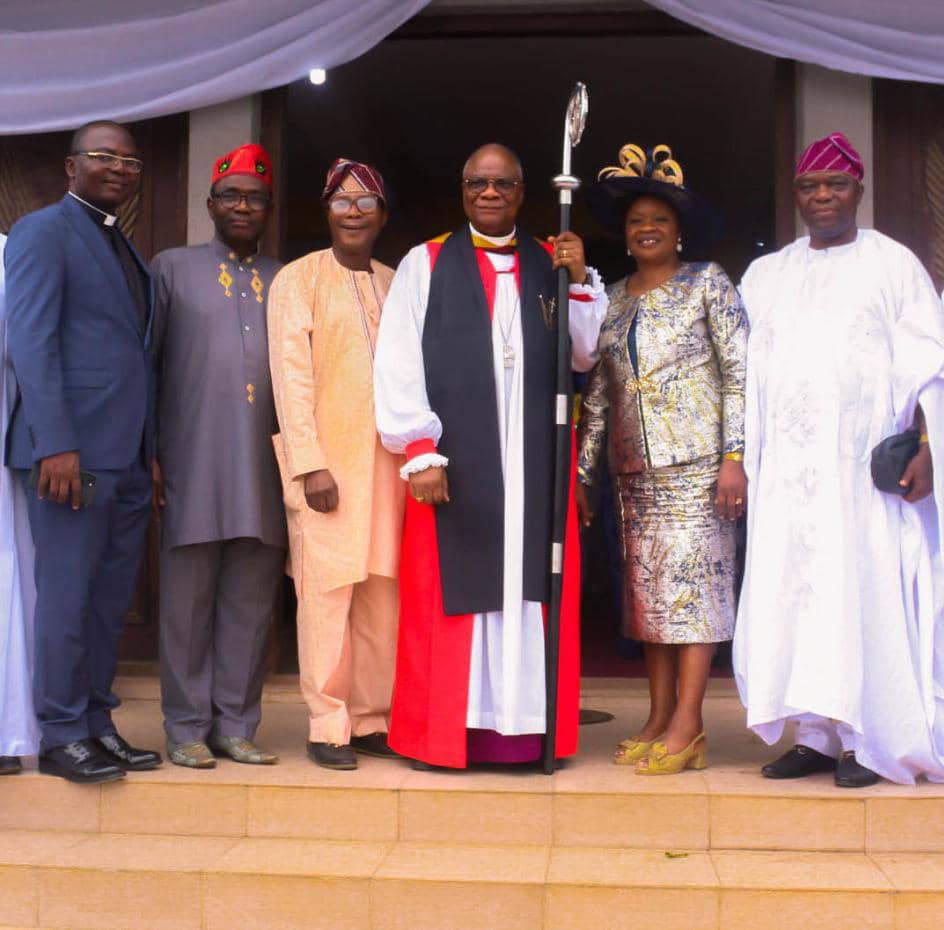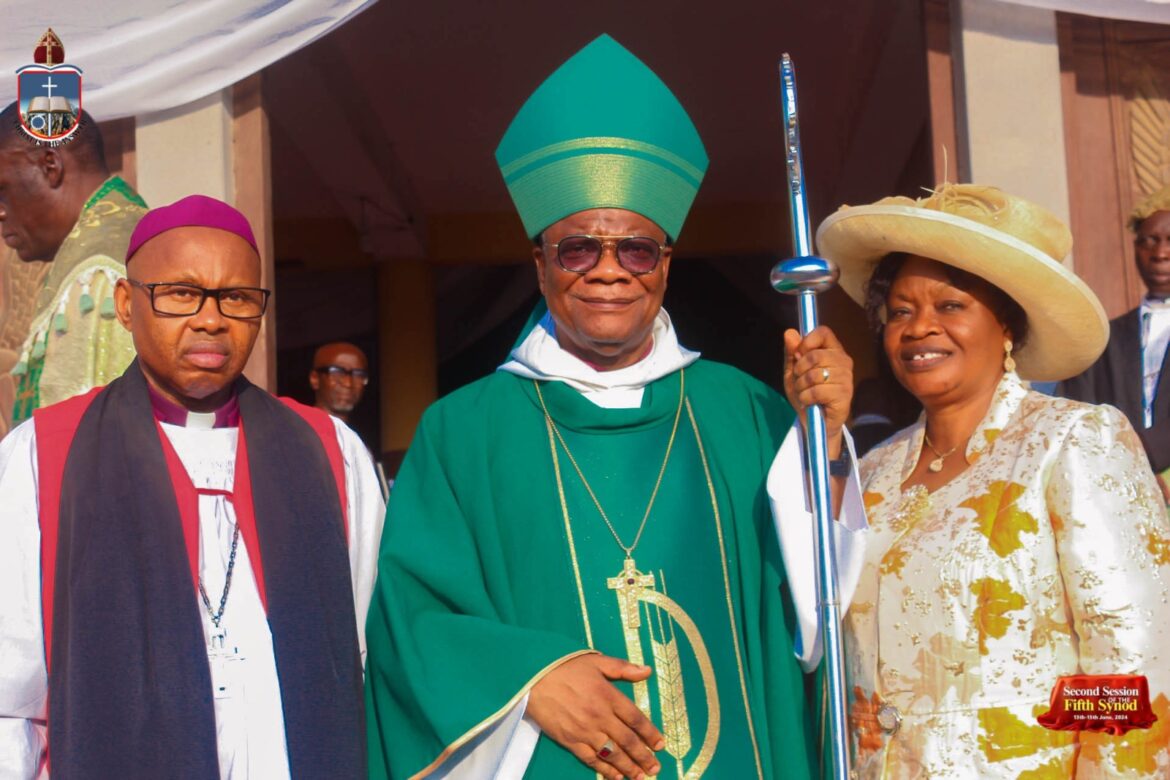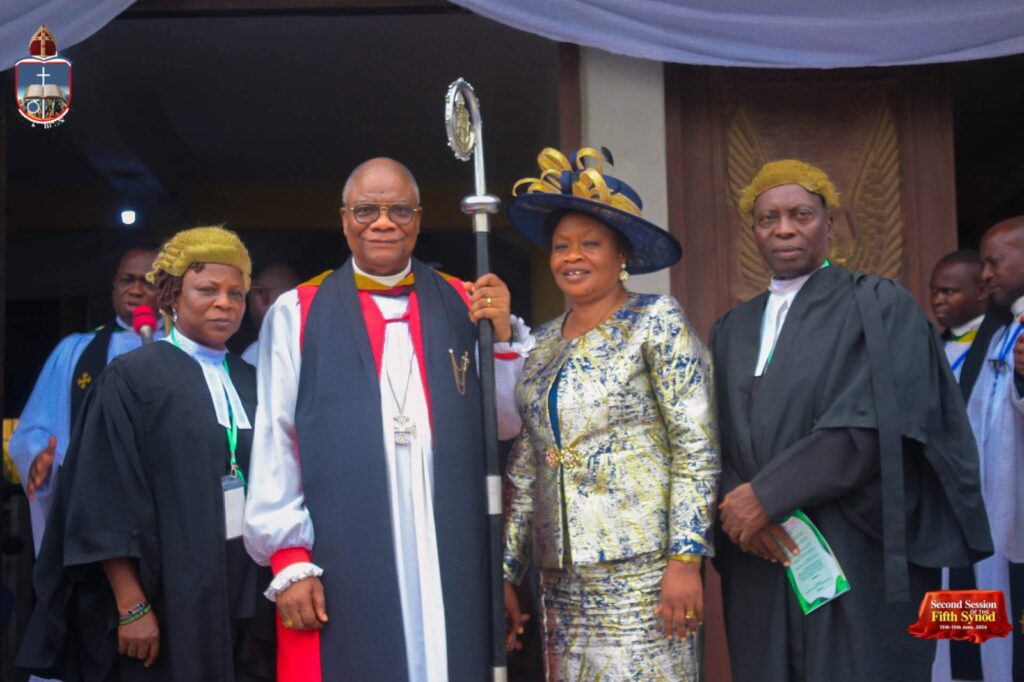Anglican Bishop of Diocese of Awori, The Rt Rev Akin Atere has linked the roots of Nigeria’s problems to its peculiar colonial history.
He made the observation while delivering his charge at the second session of the 5th Synod of the Diocese of Awori. The event took place at the Cathedral Church of St. James, Ipate Oyinbo Ota, Ogun State on June 14.
Atere also disclosed that the diocese is collaborating with Faith Comes By Hearing, to produce the Oral Bible (New Testament) in the Awori Language in the next four years.
The Synod which had the theme: Taking root before bearing fruits was dedicated to the bishop’s maternal grandmother, Mrs Madam Rachael Awawu Aiyewumi. The bishop spoke glowingly about his grandmother recalling how she was a factor in his life.
Nigeria’s problem
On Nigeria’s problem, he said, “Our problem as a nation can’t be divorced from its history. The colonial period left a lasting impact on the country. It imposed artificial boundaries that divided and amalgamated diverse ethnic groups with distinct languages, cultures, and traditions. This legacy of artificial borders has contributed to ethnic tensions, conflicts, and a lack of national unity in Nigeria.”
Atere also noted that many past leaders in the country have not done well in terms of managing the nation’s economy. This he said, “has been responsible for the dysfunctional economic and social system which has made the rich continue to get richer and the poor poorer.”
He saluted the efforts of President Bola Tinubu in trying to revamp the nation’s economy. However, he observed that most steps taken by his government are painful.
Crushing economy
Atere lamented the deplorable condition of Nigerians. ‘Today, every commodity in the Nigeria Market is beyond the reach of the average Nigerian. A situation in which more than 120 million Nigerians out of a population of 220 million are wallowing in abject poverty amid abundant human and mineral resources is shameful and unacceptable.
He said it is a curious paradox that Nigeria, Africa’s largest oil producer (lost that position to Angola due to the crises in Niger Delta) and a country that used to enjoy the biggest economy at the same time has one of the highest levels of poverty in the continent.’
He lamented the culture of corruption which according to him has led to the diversion of public resources away from critical sectors of the economy.
Way out
He noted further that the politicization of ethnicity and religion has further exacerbated divisions in the country and has hindered efforts to build a cohesive national identity.
Addressing these challenges according to Atere ‘will require comprehensive and sustained efforts to promote good governance, foster national unity, combat corruption, strengthen institutions, invest in education and healthcare, diversify the economy, and promote social inclusion.’
He pleaded with the government to “implement policies that will attract foreign investment, improve infrastructure, and promote entrepreneurship to stimulate economic growth and create job opportunities. Government should implement policies to address income inequalities, improve access to education and healthcare, and ensure equal results and opportunities for all citizens.”
The Anglican Bishop urged the government to empower security agencies and engage in a sustained dialogue on conflict resolution.
‘Investing in community policing and addressing root causes of insecurity, such as poverty and marginalization, can also contribute to improving overall security. I am one of those who believe in state police and I want all the stakeholders to consider it quickly.’ Atere said.
To promote unity, the church leader urged the government to implement policies that would promote inclusivity, dialogue, and understanding among diverse communities

At the formal opening of the Second Session of the Fifth Synod of Diocese of Awori and presentation of the Bishop’s Charge by *The RT. Rev’d Dr. Johnson A. Atere*. From the left: Ven. Victor Ayo Olusa (Executive Secretary LASMAB), Arc. Gbenga Babington, Mr. Olutayo Solanke (Vice Chairman ICAN IKeja District), The RT. Rev’d. Dr. Johnson (Bishop Aori Diocese) and Mrs. Foluke Atere (His wife), Mr. Okeowo Oderinde (Honorary Auditor Diocese of Lagos West),
Awori Bible
Bishop Atere stated that the diocese has made significant progress in its collaboration with Faith Comes By Hearing, a US-based audio Bible agency to translate the Bible into Awori Language.
According to him, translation work on the Book of Luke was completed in November 2023 and it is now available on the radio device for people to listen to. Members from other denominations and traditional leaders in Awori land were said to have vetted the project.
The project according to him has revived the interest of the people of Awori, especially the young people in speaking their mother tongue language.
He disclosed that the book of John is currently being translated adding that, “God willing, the team plans to complete the translation of the remaining books of the New Testament within four years.”
Theme of Synod
On the theme of the synod, he said, “As believers, we must first be rooted to bear fruit. The deeper your roots go, the more fruit (and better quality fruit) you’ll produce. And with deep roots, you can keep your footing. A tree with deep roots can withstand storms to bear fruit. Whenever you hear that someone who had been supposedly a practicing Christian, it might be a minister with high anointing, suddenly crashed, his or her roots may not be solid or deep enough to withstand the storm of life.”
Making copious reference to the Bible, he said, “Jesus spoke at great length on the need for his followers to bear fruit. “He says that every branch—every individual—that does not bear fruit, He takes away. He then says that those who do bear fruit He will prune. He will strip away the things not conducive to spiritual health, so they can produce even more fruit. But we cannot produce any fruit at all unless we are abiding, or continuing, in Him” Atere said.
The Anglican Bishop also took time to highlight some of the many achievements of the diocese in the past year. He cited the work done in the Diocese’s Bible College, the increase in the number of parishes and priests, and a host of others.




1 comment
WHO IS BISHOP EKEHONO AT AFRICAN ANGLICAN CHURCH IN OWODOKPOKPO. HE’S A THIEF!